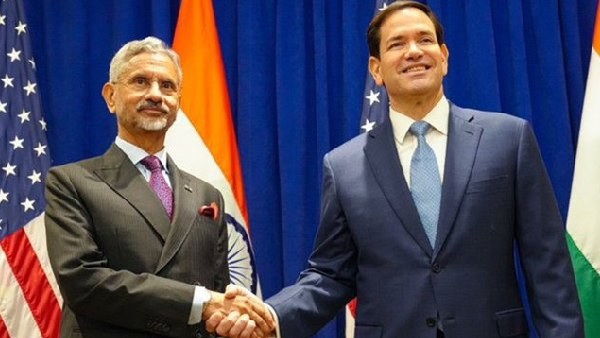
In a high-stakes diplomatic engagement on the sidelines of the 80th UN General Assembly, India’s External Affairs Minister S. Jaishankar and U.S. Secretary of State Marco Rubio met in New York to reaffirm bilateral cooperation and address mounting tensions over trade tariffs and the controversial overhaul of the H-1B visa program.
The meeting comes days after President Donald Trump’s administration imposed a 50% tariff on select Indian exports and introduced a $100,000 fee on new H-1B visa applications—moves that have sparked concern across India’s tech sector and diplomatic circles.
Key Outcomes
- Strategic Dialogue Reaffirmed: Both leaders agreed to “advance progress” on priority areas including defense, digital trade, and Indo-Pacific security.
- Trade Talks Resume: India’s Commerce Minister Piyush Goyal is set to lead a delegation to Washington next week to negotiate tariff relief and explore a new bilateral trade framework.
- Visa Concerns Acknowledged: Rubio assured Jaishankar that the U.S. remains committed to “fair and merit-based mobility,” though no rollback of the H-1B fee was announced.
Civic and Economic Impact
- Tech Sector Alarm: Indian IT firms warn of a talent bottleneck and rising operational costs, with startups particularly vulnerable to the new visa fee.
- Student Uncertainty: Thousands of Indian students on STEM pathways face ambiguity over post-study work options.
- Export Disruption: Textile and pharmaceutical exporters report immediate losses due to the tariff spike, prompting calls for government support.
“India is not just a partner—we’re shaping the future together,” Rubio said, calling the relationship “central to the Indo-Pacific story.”
Jaishankar, in turn, emphasized the need for “predictable frameworks” and “respect for mutual sensitivities,” signaling India’s intent to pursue both strategic alignment and economic fairness.
Broader Context
The meeting is seen as a crucial reset amid growing unease over Trump-era protectionism and visa restrictions. While no breakthrough was announced, the tone marked a shift from confrontation to cautious cooperation.
With trade negotiations underway and civic anxieties mounting, the coming weeks will test whether diplomacy can deliver relief—and whether the India–US partnership can weather the pressures of domestic politics and global realignment.
